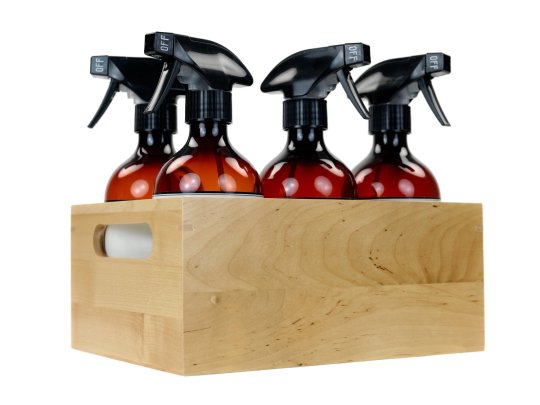#conceptlab
Explore tagged Tumblr posts
Text
Robert Pierce, Co-Founder & Chief Science Officer at DecisionNext – Interview Series
New Post has been published on https://thedigitalinsider.com/robert-pierce-co-founder-chief-science-officer-at-decisionnext-interview-series/
Robert Pierce, Co-Founder & Chief Science Officer at DecisionNext – Interview Series


Bob Pierce, PhD is co-founder and Chief Science Officer at DecisionNext. His work has brought advanced mathematical analysis to entirely new markets and industries, improving the way companies engage in strategic decision making. Prior to DecisionNext, Bob was Chief Scientist at SignalDemand, where he guided the science behind its solutions for manufacturers. Bob has held senior research and development roles at Khimetrics (now SAP) and ConceptLabs, as well as academic posts with the National Academy of Sciences, Penn State University, and UC Berkeley. His work spans a range of industries including commodities and manufacturing and he’s made contributions to the fields of econometrics, oceanography, mathematics, and nonlinear dynamics. He holds numerous patents and is the author of several peer reviewed papers. Bob holds a PhD in theoretical physics from UC Berkeley.
DecisionNext is a data analytics and forecasting company founded in 2015, specializing in AI-driven price and supply forecasting. The company was created to address the limitations of traditional “black box” forecasting models, which often lacked transparency and actionable insights. By integrating AI and machine learning, DecisionNext provides businesses with greater visibility into the factors influencing their forecasts, helping them make informed decisions based on both market and business risk. Their platform is designed to improve forecasting accuracy across the supply chain, enabling customers to move beyond intuition-based decision-making.
What was the original idea or inspiration behind founding DecisionNext, and how did your background in theoretical physics and roles in various industries shape this vision?
My co-founder Mike Neal and I have amassed a lot of experience in our previous companies delivering optimization and forecasting solutions to retailers and commodity processors. Two primary learnings from that experience were:
Users need to believe that they understand where forecasts and solutions are coming from; and
Users have a very hard time separating what they think will happen from the likelihood that it will actually come to pass.
These two concepts have deep origins in human cognition as well as implications in how to create software to solve problems. It’s well known that a human mind is not good at calculating probabilities. As a Physicist, I learned to create conceptual frameworks to engage with uncertainty and build distributed computational platforms to explore it. This is the technical underpinning of our solutions to help our customers make better decisions in the face of uncertainty, meaning that they cannot know how markets will evolve but still have to decide what to do now in order to maximize profits in the future.
How has your transition to the role of Chief Science Officer influenced your day-to-day focus and long-term vision for DecisionNext?
The transition to CSO has involved a refocusing on how the product should deliver value to our customers. In the process, I have released some day to day engineering responsibilities that are better handled by others. We always have a long list of features and ideas to make the solution better, and this role gives me more time to research new and innovative approaches.
What unique challenges do commodities markets present that make them particularly suited—or resistant—to the adoption of AI and machine learning solutions?
Modeling commodity markets presents a fascinating mix of structural and stochastic properties. Combining this with the uncountable number of ways that people write contracts for physical and paper trading and utilize materials in production results in an incredibly rich and complicated field. Yet, the math is considerably less well developed than the arguably simpler world of stocks. AI and machine learning help us work through this complexity by finding more efficient ways to model as well as helping our users navigate complex decisions.
How does DecisionNext balance the use of machine learning models with the human expertise critical to commodities decision-making?
Machine learning as a field is constantly improving, but it still struggles with context and causality. Our experience is that there are aspects of modeling where human expertise and supervision are still critical to generate robust, parsimonious models. Our customers generally look at markets through the lens of supply and demand fundamentals. If the models do not reflect that belief (and unsupervised models often do not), then our customers will generally not develop trust. Crucially, users will not integrate untrusted models into their day to day decision processes. So even a demonstrably accurate machine learning model that defies intuition will become shelfware more likely than not.
Human expertise from the customer is also critical because it is a truism that observed data is never complete, so models represent a guide and should not be mistaken for reality. Users immersed in markets have important knowledge and insight that is not available as input to the models. DecisionNext AI allows the user to augment model inputs and create market scenarios. This builds flexibility into forecasts and decision recommendations and enhances user confidence and interaction with the system.
Are there specific breakthroughs in AI or data science that you believe will revolutionize commodity forecasting in the coming years, and how is DecisionNext positioning itself for those changes?
The advent of functional LLMs is a breakthrough that will take a long time to fully percolate into the fabric of business decisions. The pace of improvements in the models themselves is still breathtaking and difficult to keep up with. However, I think we are only at the beginning of the road to understanding the best ways to integrate AI into business processes. Most of the problems we encounter can be framed as optimization problems with complicated constraints. The constraints within business processes are often undocumented and contextually rather than rigorously enforced. I think this area is a huge untapped opportunity for AI to both discover implicit constraints in historical data, as well as build and solve the appropriate contextual optimization problems.
DecisionNext is a trusted platform to solve these problems and provide easy access to critical information and forecasts. DecisionNext is developing LLM based agents to make the system easier to use and perform complicated tasks within the system at the user’s direction. This will allow us to scale and add value in more business processes and industries.
Your work spans fields as diverse as oceanography, econometrics, and nonlinear dynamics. How do these interdisciplinary insights contribute to solving problems in commodities forecasting?
My diverse background informs my work in three ways. First, the breadth of my work has prohibited me from going too deep into one specific area of Math. Rather I’ve been exposed to many different disciplines and can draw on all of them. Second, high performance distributed computing has been a through line in all the work I’ve done. Many of the techniques I used to cobble together ad hoc compute clusters as a grad student in Physics are used in mainstream frameworks now, so it all feels familiar to me even when the pace of innovation is rapid. Last, working on all these different problems inspires a philosophical curiosity. As a grad student, I never contemplated working in Economics but here I am. I don’t know what I’ll be working on in 5 years, but I know I’ll find it intriguing.
DecisionNext emphasizes breaking out of the ‘black box’ model of forecasting. Why is this transparency so critical, and how do you think it impacts user trust and adoption?
A prototypical commodities trader (on or off an exchange) is someone who learned the basics of their industry in production but has a skill for betting in a volatile market. If they don’t have real world experience in the supply side of the business, they don’t earn the trust of executives and don’t get promoted as a trader. If they don’t have some affinity for gambling, they stress out too much in executing trades. Unlike Wall Street quants, commodity traders often don’t have a formal background in probability and statistics. In order to gain trust, we have to present a system that is intuitive, fast, and touches their cognitive bias that supply and demand are the primary drivers of large market movements. So, we take a “white box” approach where everything is transparent. Usually there’s a “dating” phase where they look deep under the hood and we guide them through the reasoning of the system. Once trust is established, users don’t often spend the time to go deep, but will return periodically to interrogate important or surprising forecasts.
How does DecisionNext’s approach to risk-aware forecasting help companies not just react to market conditions but proactively shape their strategies?
Commodities trading isn’t limited to exchanges. Most companies only have limited access to futures to hedge their risk. A processor might buy a listed commodity as a raw material (cattle, perhaps), but their output is also a volatile commodity (beef) that often has little price correlation with the inputs. Given the structural margin constraint that expensive facilities have to operate near capacity, processors are forced to have a strategic plan that looks out into the future. That is, they cannot safely operate entirely in the spot market, and they have to contract forward to buy materials and sell outputs. DecisionNext allows the processor to forecast the entire ecosystem of supply, demand, and price variables, and then to simulate how business decisions are affected by the full range of market outcomes. Paper trading may be a component of the strategy, but most important is to understand material and sales commitments and processing decisions to ensure capacity utilization. DecisionNext is tailor made for this.
As someone with a deep scientific background, what excites you most about the intersection of science and AI in transforming traditional industries like commodities?
Behavioral economics has transformed our understanding of how cognition affects business decisions. AI is transforming how we can use software tools to support human cognition and make better decisions. The efficiency gains that will be realized by AI enabled automation have been much discussed and will be economically important. Commodity companies operate with razor thin margins and high labor costs, so they presumably will benefit greatly from automation. Beyond that, I believe there is a hidden inefficiency in the way that most business decisions are made by intuition and rules of thumb. Decisions are often based on limited and opaque information and simple spreadsheet tools. To me, the most exciting outcome is for platforms like DecisionNext to help transform the business process using AI and simulation to normalize context and risk aware decisions based on transparent data and open reasoning.
Thank you for the great interview, readers who wish to learn more should visit DecisionNext.
#ADD#adoption#agents#ai#Analysis#Analytics#approach#author#automation#background#beef#Behavioral economics#betting#Bias#black box#box#Business#clusters#cognition#Companies#complexity#computing#cso#curiosity#data#data analytics#data science#dating#decision making#DecisionNext
0 notes
Link
Recent developments in the field of Artificial Intelligence have led to solutions to a variety of use cases. Different text-to-image generative models have paved the way for an exciting new field where written words can be transformed into vibrant, #AI #ML #Automation
0 notes
Link
0 notes
Photo

Metti una sera che... ci facciamo un aperitivo !!!! Sabato 17 Febbraio 2018 dalle 19:00 Apericena in terrazza da Saperi e Sapori In Darsena Pop Up Sono aperte le prenotazioni l’evento è a numero chiuso accettiamo i primi che si prenotano, non perdetevi l’opportunità di essere tra noi!!!! Il progetto Concept Space è oramai una realtà e per festeggiare la nostra collaborazione abbiamo pensato che ci vuole proprio una grande festa ... vi ospitiamo nella nostra fantastica Terrazza verandata e riscaldata: bella gente , buon cibo e ottimi drink!!! Vi aspettiamo numerosi per una fantastica serata !!!!!' Cucina fusion e scelta di piatti vegetariani e vegani Menù : Piatto degustazione da buffet con cocktail o calice di vino 10€ (Per Il piatto di 4 pietanze a scelta dal buffet ) Se poi volete bissare : Solo vino/drink 5€ e buffet finché ce n’è a volontà ... E per finire in bellezza: Dolce 2€/Bis di Dolci 4€ COME FUNZIONA: mettete mi piace sulla pagina fb Concept Space e inviate un messaggio privato per la prenotazione indicando nome numero di Cell e quanti siete . Vi risponderemo al più presto dandovi conferma e modalità . La serata è a numero chiuso e prendiamo i primi che si prenotano dopo di che chiudiamo le prenotazioni . Nel caso che dopo aver prenotato si fosse impossibilitati a partecipare è necessario comunicarlo entro le 48h precedenti l'evento , così evitiamo sprechi e diamo modo a chi fosse rimasto fuori di partecipare .#food #party #apericena #aperitivo #facciamofesta #vintage #drink #conceptspace #conceptlab #bohochic #laboratoriodiidee #officinadelgusto #friendly #igersravenna #igersemilaromagna (presso Scuola di cucina Saperi e Sapori)
#officinadelgusto#conceptspace#vintage#friendly#food#laboratoriodiidee#igersravenna#drink#party#bohochic#igersemilaromagna#aperitivo#apericena#facciamofesta#conceptlab
0 notes
Photo






rondo ;)
#غابة#غار الملح#اصحاب#ربيع#ضحكة#قلوب صافية#enjoy#lifestyle#rondo#سيدي علي المكي#بنزرت#conceptlab#sun
0 notes
Text
hey CONCEPTlab experiments except they're treated mostly like the scientists' children like test tube babies
3 notes
·
View notes
Text
Postdoctoral Research Fellowship in Philosophy
Postdoctoral Research Fellowship in Philosophy

Job description
A Postdoctoral Research Fellowship (SKO 1352) is available at ConceptLab at the Department of Philosophy, Classics, History of Art and Ideas, University of Oslo (UiO).
The department is looking for a Postdoctoral Fellow whose research will contribute to the project ConsciousBrainConcepts. For information about the project in general, please see: https://www.uio.no/english…
View On WordPress
0 notes
Text
The Kids Lab, samen innoveren en ontwerpen

Op de bovenste verdieping van het hoofdpaviljoen, ontstaat een platform voor alle uitingen van experimentele kinderkleding. De grote innovatie van Pitti Immagine Bimbo 89 is The Kid's Lab!: Het is een nieuw concept, met een brede, kleurrijke lay-out. Het is complex alsmede compact en is volledig gewijd aan creativiteit en innovatie in kinderkleding en kindermode. Het is daarom (ook) gevestigd op de bovenste verdieping van het hoofdpaviljoen. De belangrijkste verdieping van de beurs verwelkomt voor de eerste keer alle verschillende definities van experimentele kindermode. The Kid's Lab! bestaat eigenlijk uit 5 verschillende secties en wordt de nieuwe habitat voor de kinderkledingmerken in de secties KidzFIZZ, #ACTIVELAB, The Nest, EcoEthic en Kid's Evolution. Experimenteren gebeurd in het conceptlab genaamd KidzFIZZ. Ontluikende merken komen in The Nest. EcoEthic staat voor duurzaamheid en de mini-collecties zitten in Kid's Evolution. #Activelab slaat een brug tussen sportkleding en urban fashion.

Voor kinderen is vanzelfsprekend een grote rol weggelegd, zij zijn immer diegene die het moeten dragen... De 5 secties zullen hiermee hun eigen onderscheidende DNA kunnen uitdrukken en tegelijkertijd de dialoog met de andere kunnen aangaan. Waarschijnlijk zullen er een hoop creatieve en mooie ideeën en producten ontstaan door dit geweldige initiatief, iets om zeker in de gaten te houden! Pitti Bimbo 89 vind plaats op 20 tot en met 22 juni 2019 in Florence en de lijst met exposanten is weer indrukwekkend... Read the full article
#Hetlaatstekinderkledingnieuws#innoveren#kinderfashion#kinderkledingblog#kinderkledingnieuws#kindermode#kindermodeblog#PittiBimbo#samenwerken
0 notes
Text
ConceptLab Visiting Fellowships for International and Norwegian Students in Norway, 2018/19
ConceptLab Visiting Fellowships for International and Norwegian Students in Norway, 2018/19
The ConceptLab on the College of Oslo is inviting packages for ConceptLab Visiting Fellowships for the 12 months 2018/19. Fellowships are to be had for Global and Norwegian scholars.
ConceptLab’s goal is to foster collaborative analysis on “conceptual engineering” – the critique and development of ideas. We examine ideas from throughout philosophy and past. The middle’s remit thus covers all…
View On WordPress
0 notes
Link
At Concept Labs, we are passionate about your success. We have the expertise along with 20 years of the real-world experience you need to get your new products off the ground or to assist in making your current success more seamless.
0 notes
Link

#PrivateLabel#BodyCream#OTCTopicalManufacturers#OTCManufacturer#Cosmetics#SkinCare#ConceptLab#OTCMedicines#OTCProducts
0 notes
Link
At Conceptlabs, We provide custom formulation system to our client. We deal in skin care, hair care, cosmetics and ensure you to provide a unique solution for every product.
0 notes
Link
Along with the formulation and manufacturing, you should be concerned about the filling and packaging. It’s because they are the first point of attraction. If the tube, bottles, or jars are not filled and packed properly, the customers will not be interested. They will think if the packaging is not good, there is no guarantee for the product inside. So you should work on these factors when launching a skin care product in the market.
0 notes
Link
If you have a good sense of what your consumers want and what can create the buzz in the market, it would be difficult to earn more with the help of a private label body care manufacturers. But, before signing up for the deal, make sure to do in-depth research about private label body care manufactures
0 notes
Link

0 notes